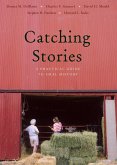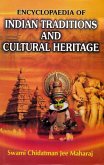In Telling Stories, Mary Jo Maynes, Jennifer L. Pierce, and Barbara Laslett argue that personal narratives-autobiographies, oral histories, life history interviews, and memoirs-are an important research tool for understanding the relationship between people and their societies. Gathering examples from throughout the world and from premodern as well as contemporary cultures, they draw from labor history and class analysis, feminist sociology, race relations, and anthropology to demonstrate the value of personal narratives for scholars and students alike.
Telling Stories explores why and how personal narratives should be used as evidence, and the methods and pitfalls of their use. The authors stress the importance of recognizing that stories that people tell about their lives are never simply individual. Rather, they are told in historically specific times and settings and call on rules, models, and social experiences that govern how story elements link together in the process of self-narration. Stories show how individuals' motivations, emotions, and imaginations have been shaped by their cumulative life experiences. In turn, Telling Stories demonstrates how the knowledge produced by personal narrative analysis is not simply contained in the stories told; the understanding that takes place between narrator and analyst and between analyst and audience enriches the results immeasurably.
"This decade has witnessed the publication of several anthologies that focus on how to design and conduct oral history projects; introduce and illustrate new applications of oral history to geographical, historical, and social research; and discuss the application of new technologies to oral history methodology.... In this new, important corollary to these works, the authors emphasize the research opportunities available through analysis of personal narratives: 'Read carefully, these sources provide unique insights into the connections between individual life trajectories and collective forces and institutions beyond the individual.' Telling Stories belongs in every oral history collection. Summing Up: Essential." ¿ Choice
Telling Stories explores why and how personal narratives should be used as evidence, and the methods and pitfalls of their use. The authors stress the importance of recognizing that stories that people tell about their lives are never simply individual. Rather, they are told in historically specific times and settings and call on rules, models, and social experiences that govern how story elements link together in the process of self-narration. Stories show how individuals' motivations, emotions, and imaginations have been shaped by their cumulative life experiences. In turn, Telling Stories demonstrates how the knowledge produced by personal narrative analysis is not simply contained in the stories told; the understanding that takes place between narrator and analyst and between analyst and audience enriches the results immeasurably.
"This decade has witnessed the publication of several anthologies that focus on how to design and conduct oral history projects; introduce and illustrate new applications of oral history to geographical, historical, and social research; and discuss the application of new technologies to oral history methodology.... In this new, important corollary to these works, the authors emphasize the research opportunities available through analysis of personal narratives: 'Read carefully, these sources provide unique insights into the connections between individual life trajectories and collective forces and institutions beyond the individual.' Telling Stories belongs in every oral history collection. Summing Up: Essential." ¿ Choice
Dieser Download kann aus rechtlichen Gründen nur mit Rechnungsadresse in A, D ausgeliefert werden.









